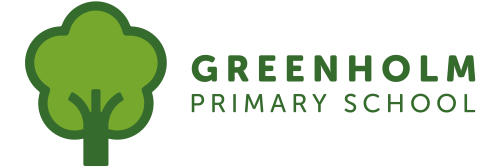Our Curriculum Intent
Our intent is to develop our pupils’ curiosity, enjoyment, resilience, self-improvement, and thirst for learning, whilst also helping them to develop the subject-specific knowledge, skills, and understanding as set out in the National Curriculum so that children can flourish and achieve highly. We intend learning in science to be through a range of creative, engaging, high-quality experiences leading our pupils to be equipped to answer questions about the world around them today and the future. It is our intention that, through science, pupils at Greenholm Primary School will continue to deepen their respect for their world and all its phenomena, make healthy and environmentally-friendly choices which increase their care and appreciation of the world thus becoming positive, global citizens.
Our Curriculum Goals
Are to ensure that all pupils:
- Develop scientific knowledge and conceptual understanding through the specific disciplines of biology, chemistry, and physics
- Develop an understanding of the nature, processes, and methods of science through different types of science inquiries that help them to answer scientific questions about the world around them
- Are equipped with the scientific knowledge required to understand the uses and implications of science, today and for the future.

Teaching of Science
At our school science is taught in planned and arranged theme blocks. This allows pupils to develop a greater depth of knowledge. Teachers will start with what children already know, understand, are able to do and able to say. Lessons will develop pupils’ scientific knowledge, scientific vocabulary, and investigative skills. Through our planning, we involve problem-solving opportunities that allow children to find out for themselves. Children are encouraged to ask their own questions and be given opportunities to use their scientific skills and research to discover the answers. This curiosity is celebrated within the classroom. Planning involves teachers creating engaging lessons, often involving high-quality resources to aid understanding of conceptual knowledge. Teachers use precise questioning in class to test conceptual knowledge and skills and assess children regularly to identify those children with gaps in learning so that all children keep up.
We build upon the learning and skill development of the previous years. As the children’s knowledge and understanding increases, and they become more proficient in selecting, using scientific equipment, collating and interpreting results, they become increasingly confident in their growing ability to come to conclusions based on real evidence.
Working Scientifically
Working Scientifically skills are embedded into lessons to ensure these skills are being developed throughout the children’s school career and new vocabulary and challenging concepts are introduced through direct teaching. This is developed over the years, in keeping with the topics.
Teachers demonstrate how to use scientific equipment, and the various Working Scientifically skills in order to embed scientific understanding. Teachers find opportunities to develop children’s understanding of their surroundings by accessing outdoor learning and workshops with experts.

Scientific Literacy
Scientific literacy is promoted through pupils learning to spell and use Tier 2 and Tier 3 words linked to science knowledge accurately. It allows pupils to explain science using appropriate language. Pupils have opportunities to read science books and articles which develop their literacy and science knowledge. They also learn about significant scientists and their contribution to the world they live in.
Scientific Numeracy
Scientific numeracy is promoted through pupils using mathematical skills within their science lessons. They are given opportunities to analyze data in different forms and draw conclusions. They are given the opportunity to improve their measurement skills using a range of equipment

Inclusion
Our school is fully inclusive, valuing the abilities and achievements of all our pupils. We are committed to providing, for each pupil, the best possible environment for learning.
- we ensure that all pupils have access to a broad and balanced science curriculum.
- we provide a differentiated curriculum appropriate to the individual’s needs and ability.
- we ensure that SEND pupils take as full a part as possible in all science activities
We recognize that many pupils will have special needs at some time during their school life. Whilst many factors contribute to the range of difficulties experienced by some children, we believe that much can be done to support them by parents, teachers, and pupils working together.
Assessment
- At Greenholm we believe the assessment is at the heart of teaching and learning.
- Day-to-day formative assessment is used by teachers to inform the next steps for all their pupils.
- In-school summative assessments (mini-sats) is used to assess pupils’ performance at the end of a unit of work.
- National statutory summative assessment is used to understand pupil performance in relation to national expectations and comparisons.
- We use Target Tracker as the assessment tool – this allows teachers to track progress and attainment of all pupils; diagnose and record pupil understanding; plan the next steps for pupil learning;
Science Schemes Of Work
The fantastic quality of science teaching at Greenholm School has been recognized with the achievement of a Gold award for the Primary Science Quality Mark.
